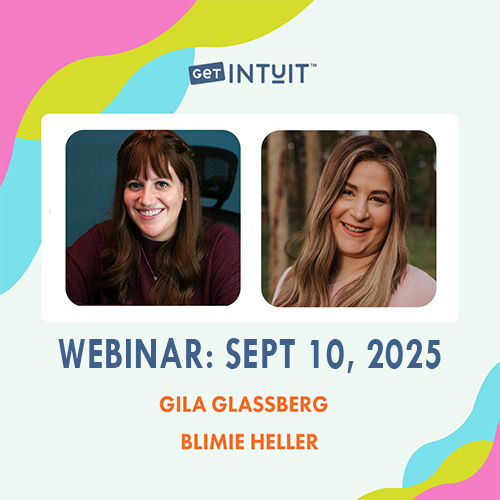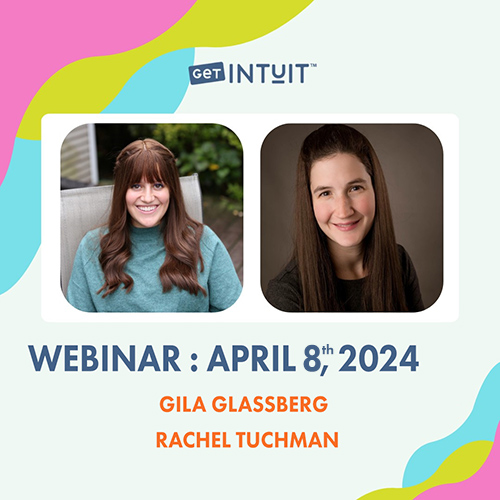Ozempic: Why all the Hype?


Ozempic: Why all the Hype?
Just about everyone I come into contact with who knows I am a dietitian says something like “but what about ozempic.” I understand. We are all looking for that quick fix pill. For many people, they aren’t even looking for that quick fix. They are willing to put in the hard work and determination to lose weight. But we know, we really know that dieting ultimately leads to weight gain, NOT weight loss. So let’s take a look at the research together. I am here to educate you. It is always your choice to make the decision you think is right for you.
Ozempic is becoming wildly popular.
What was once a drug used for the treatment of Type 2 diabetes has become everyone’s favorite weight loss drug.
But is it safe?
Ozempic is a drug containing glucagon-like-peptide 1 (GLP-1), a hormone that is secreted by the intestine upon food consumption. It is approved by the FDA for individuals whose body mass index (BMI) is at least 27kg/m2 with the addition of a weight related condition*, such as type 2 diabetes, hypertension, or cholesterol. It has also become available to those who have a BMI higher than 30kg/m2 without any additional health concerns. Ozempic was approved on December 5th, 2017, by the FDA, although it has only recently gained popularity in the last year for its weight loss effects. (1)
The most common side effects of Ozempic are nausea and diarrhea, and these symptoms are mild to moderate and go away over time. (3) Additional side effects include low blood sugar and inflammation of the pancreas. (1) The weight loss achieved by Ozempic is only maintainable if people stay on the drug and make significant lifestyle chances to improve their health. (4)
This drug has become so widespread that the internet coined the term “Ozempic Face” referring to the unnatural shape one’s face has from the rapid weight loss achieved by Ozempic. (2) Because of this, plastic surgeons are faced with a challenge of those whose faces have suddenly become filled with wrinkles and sagging skin. (5)
Seven clinical trials were done over the course of 2 years (1). A double-blinded study was done with 1,961 people with a BMI of 30kg/m2 or over who did not have diabetes. Each of these participants were randomly assigned in a 2:1 ratio and were assigned a dosage of 2.4mg of Ozempic or a placebo for 68 weeks of treatment. In those who received Ozempic, there was a 15.3kg of weight loss, while those who received the placebo lost only 2.6kg of their weight.
A similar study was a double- blinded, parallel-group, randomized, placebo-controlled trial studying adolescents between the ages of 12-17 with Obesity. These participants also had at least one weight-relation condition. These teenagers were also randomly assigned in a 2:1 ratio to receive 2.4mg of Ozempic weekly. They were also given lifestyle intervention to see how it would affect results. The results showed that once a week weight loss treatment was more effective in reducing BMI than just lifestyle intervention. There were two main endpoints: the primary endpoint was to find the percentage change from baseline to week 68, and the second confirmatory end point was a weight loss of at least 5% by week 68.
The results concluded that a total of 201 participants underwent randomization, but only 90% of the study participants (180) completed the treatment. All of them except one had obesity. The main change in the adolescent’s BMI with Ozempic was -16.1% and 0.6% with the placebo. A total of 95 out of 131 participants had lost 5% of their weight, as compared to the 11 out of 22 participants who took the placebo. With those who took Ozempic, there was a greater improvement of cardiovascular diseases, such as levels of glycated hemoglobin, lipids, (except for high levels of cholesterol) and alanine, as well as weight circumference.
The conclusions showed that among obese adolescents the weekly dose of 2.4mg with the addition of lifestyle intervention greatly reduced their BMI more than just lifestyle intervention alone. (6)
An additional study was done to test weight gain and cardiometabolic effects after the withdrawal of Semaglutide (Ozempic). This test was composed of participants residing in Canada, the UK, Germany, as well as Japan and the United States with the highest levels of recruitment. This analysis included 327 participants. Up until week 68, the participants mean weight loss was at 17.3%, while placebo weight loss was at 2.0%. After treatment stopped, these participants gained 11.6% and 1.9% from weeks 0-120. Cardiometabolic improvements reverted by week 120.
One year after the withdrawal of 2.4mg of Ozempic weekly with lifestyle intervention, those who participated in the study gained back two-thirds of their weight, in addition to their cardiometabolic problems.
There is a big conflict of interest in this study, as all the authors benefit in some way. John P H Wilding receives advisory board fees from Astellas Pharma. He also received grant support and membership fees on a data and safety monitoring board, paid to Liverpool University, travel support and lecture fees from AstraZeneca and advisory board fees, all paid to his institution. Rachel L Batterham, Melanie Davis, Luc F Van Gaal, Kristian Kandler, Kartrina Konakli, Ildiko Lingvay, Thomas A Wadden, Sean Wharton, Koutaro Yokote, and Robert F Kushner also got lecture fees from Novo Nordisk, creator of Ozempic, and advisory board fees from Takeda Medical Research Foundation. Katrina Konakli and Tugace Kalayci Oral are both employed by Novo Nordisk. Barbra M McGawen. receives fees from AstraZeneca, Merck and Orexigen Therapeutics, as well as Johnson and Johnson Care Systems, and lecture fees from Janssen Biotech, in addition to consulting and educational fees from Novo Nordisk. (7)
A note from Gila. I want you to learn to read basic research and have a discerning eye. Notice how short the participants were studied. In research, things that are correlated doesn’t mean the 2 things caused each other (correlation doesn't equal causation). Conflict of interest is also extremely important to pay attention to. If someone is getting paid to make this drug look good and they are the ones conducting the research, realize that they want you to buy this drug and they don’t have your best interest at hand. Notice that many people who did lose weight gained it back, plus their cardiometabolic symptoms came back as well.
The drug hasn’t been studied long enough for us to truly understand the negative side effects. Also - please do your own research and speak with your medical provider. There are people who can benefit greatly from medications like this. But as always- handle with care.
*Weight related is the terminology that the researchers are using, not us.
-
Carboni A, Woessner S, Martini O, Marroquin NA, Waller J. Natural Weight Loss or "Ozempic Face": Demystifying A Social Media Phenomenon. J Drugs Dermatol. 2024 Jan 1;23(1):1367-1368. doi: 10.36849/JDD.7613. PMID: 38206146.
-
Wilding JPH, Batterham RL, Calanna S, Davies M, Van Gaal LF, Lingvay I, McGowan BM, Rosenstock J, Tran MTD, Wadden TA, Wharton S, Yokote K, Zeuthen N, Kushner RF; STEP 1 Study Group. Once-Weekly Semaglutide in Adults with Overweight or Obesity. N Engl J Med. 2021 Mar 18;384(11):989-1002. doi: 10.1056/NEJMoa2032183. Epub 2021 Feb 10. PMID: 33567185.
-
Ard J, Fitch A, Fruh S, Herman L. Weight Loss and Maintenance Related to the Mechanism of Action of Glucagon-Like Peptide 1 Receptor Agonists. Adv Ther. 2021 Jun;38(6):2821-2839. doi: 10.1007/s12325-021-01710-0. Epub 2021 May 11. PMID: 33977495; PMCID: PMC8189979.
-
Humphrey CD, Lawrence AC. Implications of Ozempic and Other Semaglutide Medications for Facial Plastic Surgeons. Facial Plast Surg. 2023 Dec;39(6):719-721. doi: 10.1055/a-2148-6321. Epub 2023 Aug 4. PMID: 37541662.
-
Weghuber D, Barrett T, Barrientos-Pérez M, Gies I, Hesse D, Jeppesen OK, Kelly AS, Mastrandrea LD, Sørrig R, Arslanian S; STEP TEENS Investigators. Once-Weekly Semaglutide in Adolescents with Obesity. N Engl J Med. 2022 Dec 15;387(24):2245-2257. doi: 10.1056/NEJMoa2208601. Epub 2022 Nov 2. PMID: 36322838; PMCID: PMC9997064.
-
Wilding JPH, Batterham RL, Davies M, Van Gaal LF, Kandler K, Konakli K, Lingvay I, McGowan BM, Oral TK, Rosenstock J, Wadden TA, Wharton S, Yokote K, Kushner RF; STEP 1 Study Group. Weight regain and cardiometabolic effects after withdrawal of semaglutide: The STEP 1 trial extension. Diabetes Obes Metab. 2022 Aug;24(8):1553-1564. doi: 10.1111/dom.14725. Epub 2022 May 19. PMID: 35441470; PMCID: PMC9542252.
Thank you for being here! To check out more blogs like this one:
Check out my most popular blog post here:
https://www.jproactive.com/post/gila-grief-journey
If you are ready to make peace with food and never say diet again, check out my website https://gilaglassberg.com and apply for a free 20 minute clarity call. I look forward to hearing from you!






















